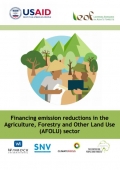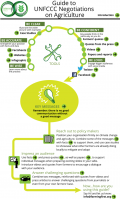Global
Covering 52 million hectares of forest lands, forest licenses in Indonesia can play a role to regulate high forestry and land sector emissions and be a key element in strengthening forest governance for REDD+. The existing online licensing system at the central level has been a first...
In the Sacred Valley one development organization is doing things differently to help high-altitude communities help themselves.
Starting in 2010, the Andean Alliance for Sustainable Development...
To ensure economic expansion while also contributing to global efforts to combat climate change, many developing countries are adopting Low Emission Development Strategies (LEDS) among other initiatives. Because the agriculture, forestry and land use (AFOLU) sectors are key economic...
The 2015 Global Climate Legislation Study, covering 98 countries plus the European Union which are together responsible for 93 per cent of global emissions, will be presented to delegates tomorrow (2 June) in Bonn, Germany, where the latest round of United Nations climate change...
The 17th Conference of the Parties (COP17) to the United Nations Framework Convention on Climate Change (UNFCCC) held in Durban, South Africa, in November–December 2011 reached a decision known as the Durban Platform. It launched “a new process to develop a protocol, another legal...
This paper aims to better understand the link between Latin American countries’ proposed climate actions before 2020 and their post-2020 targets under a Paris agreement. We look at why Latin American climate policies and pledges merit attention, and review how Latin American nations...
As climate negotiations gather momentum, it is not too late to take action on agriculture, the sector that can ensure our future food security and play a key role in adapting to climate change and mitigate future greenhouse gas emissions.
For...










